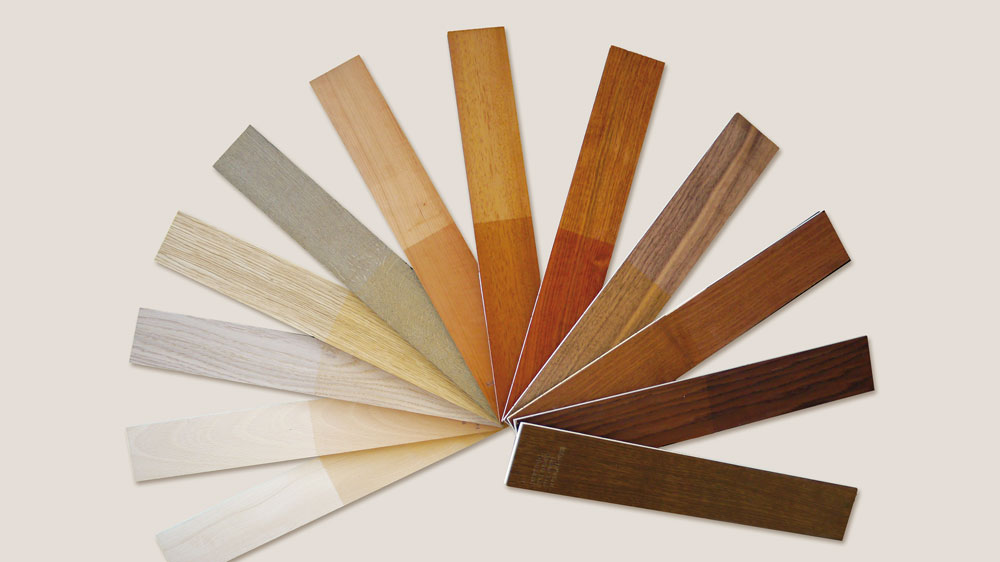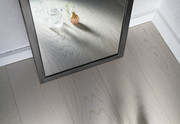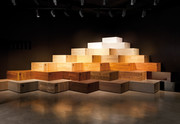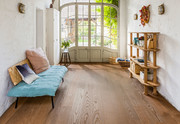Discolouration in parquet: a natural process
As a living, natural material, wood changes colour if subjected to light over a long period.

As a living, natural material, wood changes colour if subjected to light over a long period.
As a living, natural material, wood changes colour if subjected to light over a long period.
UV radiation and changing lighting conditions may modify the colour of wooden floors and our perception of them. To avoid potential surprises, it is important to familiarise yourself with the possible interactions of light and different types of wood in advance.
Wood is a natural product, and its colour takes time to develop. It mostly happens in the beginning: the colour of the wood can become darker, lighter, or change its hue, which emphasises the character of authentic wood floors.
This natural play of colour results from the breakdown of an important component of wood: lignin. This substance protects wood cells from UV radiation and other effects. However, once the tree is felled, it produces no more lignin. Because the amount of this component varies in different types of wood, they react differently to light and sun radiation:
· Oak floors go a little darker.
· Maple parquet develops a golden colour.
· Beech attains a darker, reddish shade.
· Ash becomes darker, with a tinge of yellow.
· The red colouring of cherry parquet becomes even more intense.
· Steamed parquet made of walnut and acacia develops a golden-brown
colour and becomes lighter.


While untreated wood reacts more to UV radiation, colour changes can be influenced and minimised through various surface treatments:
These tend to change colour in a somewhat different way, because sunlight has little effect on the substance used to stain the wood. However, it does influence the wood itself, and sunlight can lead to light (e.g. white) parts becoming light-yellow. If the stained parquet has a darker colour, e.g. grey, you can expect the wood to have better colour stability.
The dark colour of smoked wood changes very little, because the smoking process prevents discolouration. Under direct sunlight, smoked oak becomes only slightly lighter, and attains a more golden shade.
This surface treatment developed by Bauwerk preserves the wood’s natural character. At the same time, it only allows minimal long-term changes in the look of the parquet, and its original colour will mostly endure. Thus, B-Protect® provides an important feature that is unique compared to other lacquering systems.

The warmth of the light changes our perception of the floor and affects our mood. Cool light can be rather refreshing and invigorating, and is preferred in work contexts. Warm light, on the other hand, creates a sense of comfort and builds a cosier atmosphere: perfect for bedrooms and living rooms.
The temperature of light can also change the way the floor looks, which varies as the day goes on. Different temperatures of light emphasise different facets of parquet. That is why it is important to consider the room’s lighting when choosing parquet.
For you to experience the parquet you like in the entire light spectrum, we offer a day-light simulation, which is available at our worlds of parquet showroom in Wallisellen, and in the Living Berlin.
Neudorfstrasse 49
9430 St. Margrethen
T +41 71 747 74 74
In 1935, Ernst Göhner brought the idea of solid parquet to mass production before founding Bauwerk Parkett in 1944. Since then, Bauwerk has been researching, developing, and manufacturing innovative, aesthetic parquet solutions of the highest quality with great passion and Swiss precision. Original parquet floors by Bauwerk, one of Europe’s leading parquet manufacturers, offer the unique feel of a real piece of nature that provides tangible warmth and healthy living for a perfectly balanced atmosphere in any room. Experience Bauwerk’s diverse range of wooden floors in one of our showrooms and get our advice without any obligations.